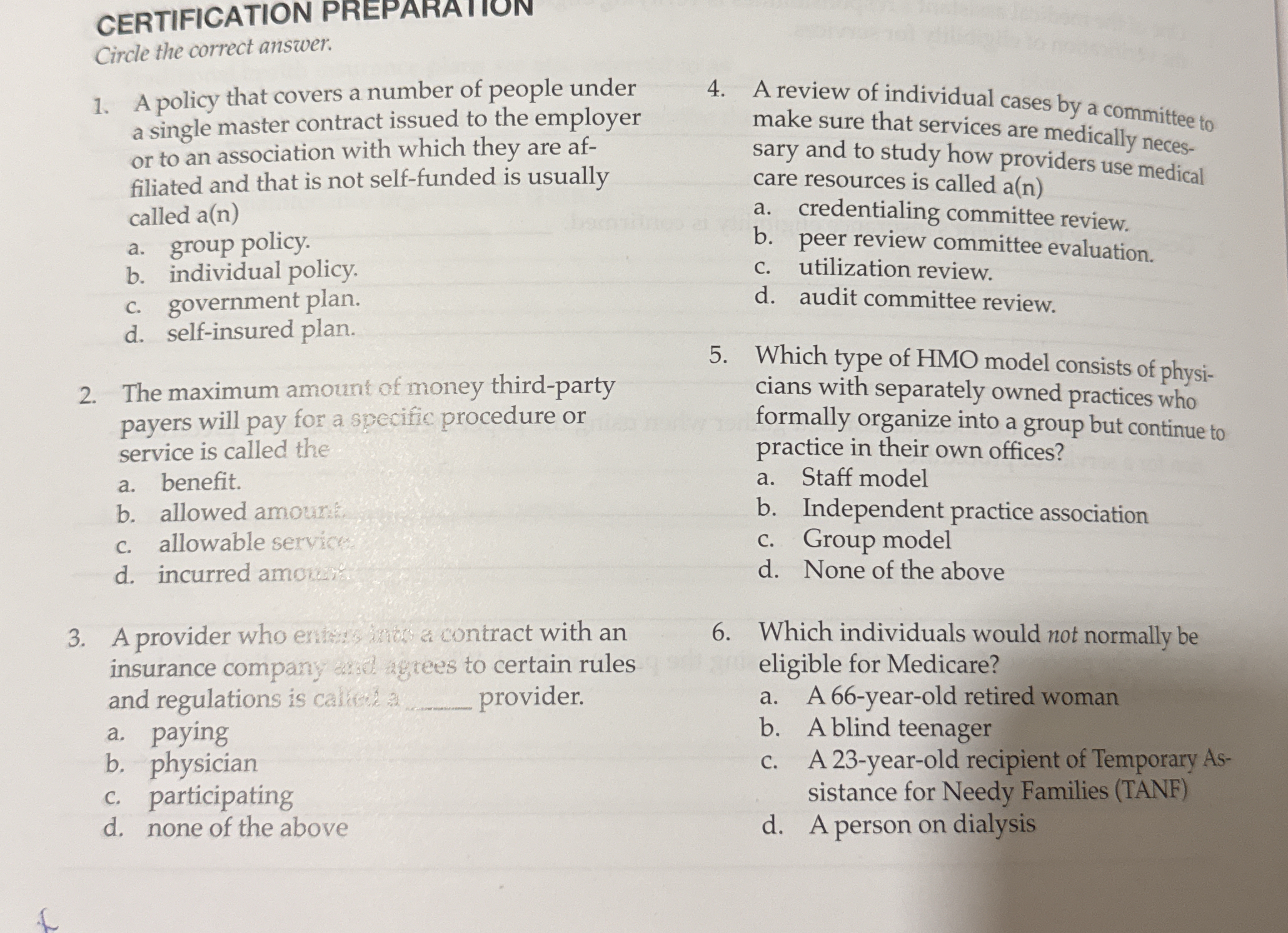1. A policy that covers a number of people under a single master contract issued to the employer or to an association with which they are affiliated and that is not self-funded is... 1. A policy that covers a number of people under a single master contract issued to the employer or to an association with which they are affiliated and that is not self-funded is usually called a(n) __________. 2. The maximum amount of money third-party payers will pay for a specific procedure or service is called the __________. 3. A provider who enters into a contract with an insurance company and agrees to certain rules and regulations is called a __________ provider. 4. A review of individual cases by a committee to make sure that services are medically necessary and to study how providers use medical care resources is called a(n) __________. 5. Which type of HMO model consists of physicians with separately owned practices who formally organize into a group but continue to practice in their own offices? 6. Which individuals would not normally be eligible for Medicare?

Understand the Problem
The question set is a multiple-choice quiz focused on health insurance and medical policy terminology. It is asking about specific terms and definitions related to insurance, third-party payers, providers, and eligibility for Medicare.
Answer
1. Group policy 2. Allowed amount 3. Participating provider 4. Utilization review 5. Independent practice association 6. TANF recipient
- Group policy 2. Allowed amount 3. Participating provider 4. Utilization review 5. Independent practice association 6. A 23-year-old recipient of Temporary Assistance for Needy Families (TANF)
Answer for screen readers
- Group policy 2. Allowed amount 3. Participating provider 4. Utilization review 5. Independent practice association 6. A 23-year-old recipient of Temporary Assistance for Needy Families (TANF)
More Information
Group policies cover groups under a single contract, while the allowed amount is the maximum a third-party payer will pay. Participating providers contract with insurers, utilization review ensures necessity, and an independent practice association allows doctors to practice independently. TANF recipients are typically not eligible for Medicare.
Tips
Confusing 'allowed amount' with 'benefit' can be common. A benefit is the service, not how much is paid.
AI-generated content may contain errors. Please verify critical information